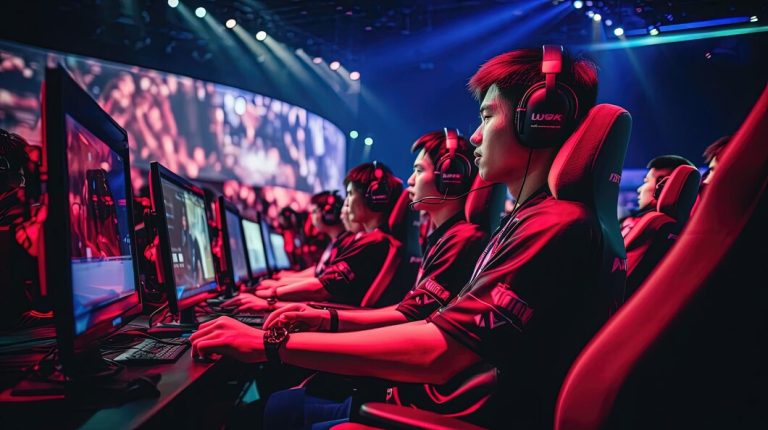Welcome to the digital arena, where pixels meet passion and strategy trumps luck. Esports, or electronic sports, has transcended its origins as a niche hobby to become a global entertainment powerhouse. From packed stadiums to millions of online viewers, the world of competitive gaming is a high-stakes, high-octane spectacle. If you’re looking to understand this thrilling universe, this guide is your entry ticket.
The Rise of a Phenomenon
The roots of esports can be traced back to the early days of video games, with the first known competition taking place in 1972 at Stanford University for the game Spacewar! The prize? A one-year subscription to Rolling Stone magazine. Fast forward to today, and the prizes have grown a bit. For instance, the prize pool for the 2025 League of Legends World Championship is $5 million, with additional revenue from in-game sales. This immense growth is a testament to the dedication of players, the vision of developers, and the power of a connected global audience.
The Major Players and Game Genres
The esports world is dominated by a few key genres, each with its own set of legends and a dedicated fanbase:
- Multiplayer Online Battle Arenas (MOBAs): These team-based strategy games are arguably the most popular esports titles. League of Legends and Dota 2 pit two teams against each other to destroy the opposing base, demanding complex strategy, perfect execution, and seamless teamwork.
- First-Person Shooters (FPS): For those who crave action, FPS games are the main event. Counter-Strike 2 and Valorant are iconic titles that require lightning-fast reflexes, precise aim, and coordinated tactical plays.
- Real-Time Strategy (RTS): These games focus on strategic thinking and resource management. StarCraft II is a legendary title in this genre, where players must outwit their opponents in real-time.
- Fighting Games: Street Fighter and Mortal Kombat have been mainstays of competitive gaming for decades, with tournaments like the Evolution Championship Series (EVO) attracting the world’s best one-on-one combatants.
Beyond the Game: The Ecosystem
Being a part of the esports world is about more than just playing. It’s a vast ecosystem that includes:
- Professional Players: These are the athletes of the digital age. They train for hours, live in team houses, and follow strict regimens to maintain peak physical and mental performance.
- Organizations and Teams: Teams like T1, FaZe Clan, and Cloud9 are the brands of esports. They sign players, manage sponsorships, and build a fan following, much like traditional sports teams.
- Broadcasters and Analysts: From live commentary during matches to in-depth analysis of strategies, broadcasters and analysts are the storytellers of the esports world, making the complex action understandable and exciting for new viewers.
- The Fans: The lifeblood of esports is its passionate and engaged community. Fans follow their favorite players and teams religiously, creating a vibrant subculture that includes fan art, merchandise, and online forums.
Navigating Your Way In
If you’re inspired to be a part of this world, there are many avenues to explore. You could start by honing your skills in a game you love, joining a community, and competing in online tournaments. For those interested in the business side, there are opportunities in event management, content creation, and team operations. The gaming landscape also includes a wide range of other digital experiences. For example, some people enjoy the strategic challenge of a classic card game like qq poker, which has a thriving online community. Others might prefer the more casual fun of a gaming site like astroslot, which offers a different kind of digital entertainment. All these platforms, from the high-stakes world of esports to the casual side of gaming, are part of the broader digital arena.
Esports is more than just entertainment; it’s a testament to skill, teamwork, and the power of competition. So grab a chair, fire up your PC, and enter the digital arena. The future of sports is here.
